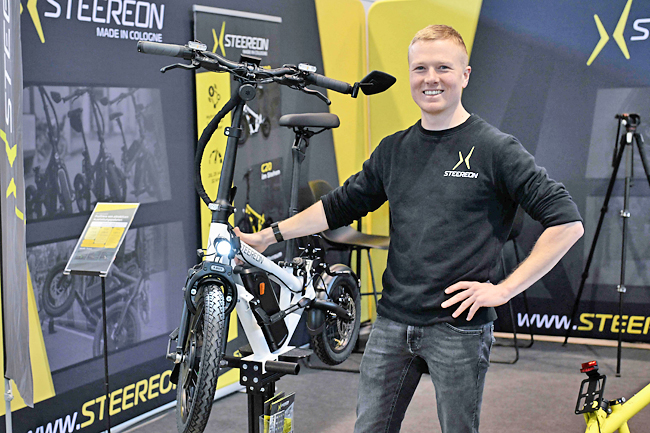STUTTGART (AFP) – At a bicycle trade fair in Stuttgart, steep discounts on brand-new models hint at the turmoil roiling the industry now that a pandemic-fuelled cycling craze has faded.
Price cuts of 20 to 30 per cent were not unheard of at this month’s event in the southwestern German city, where sellers sought to offload surplus stock in the face of falling demand.
Long gone are the days when COVID-related shutdowns inspired a surge in bicycle sales in 2020-2022, as people looked for more outdoor recreation or tried to avoid using public transport.
At Electrolyte, a company that makes customised electric bikes in southern Germany, orders jumped 50 per cent during the pandemic and customers faced months-long wait times because of disruptions to global supply chains.
But the mood today is different.
“The conflict in Ukraine has played a role, with high inflation leading people to think twice before spending their money,” said sales manager at Electrolyte Oliver Arlt.
Sales at the company were down 15 per cent last year.
“The market is changing a lot right now,” said president of the German bicycle industry association ZIV Burkhard Stork.
In Germany, Europe’s largest economy, sales of conventional bicycles declined 20 per cent over the first five months of 2023 compared with the period a year earlier, according to ZIV.
E-bike sales were down 12 per cent. Stork expects 2024 to be a “difficult” year for the industry. Fewer new launches are also expected as manufacturers try to extend the lifetime of unsold models.
Buoyed by cycling’s fast-paced growth during the pandemic and wanting to get ahead of any future supply chain snarls, many industry players increased their orders during the boom. Waning demand now has led to overstock, leaving manufacturers and retailers with little choice but to resort to discounts.
Andreas Gutacker, who manages a bicycle store and a website for online sales, said the site uses a repricing algorithm that scans competitors’ offers and “automatically lowers our price”, he said.
Price drops of up to 20 per cent for e-bikes and even 30 per cent for conventional bikes were possible, he told AFP at the Stuttgart industry event.









